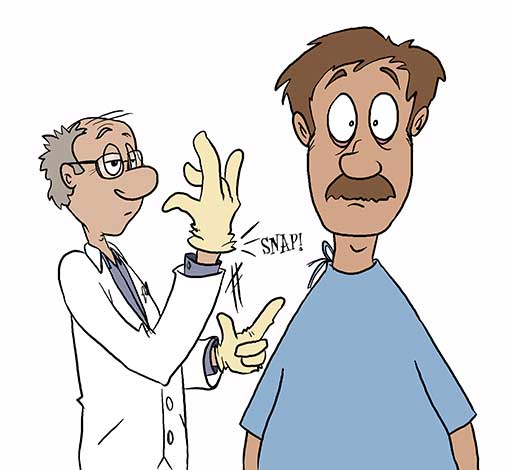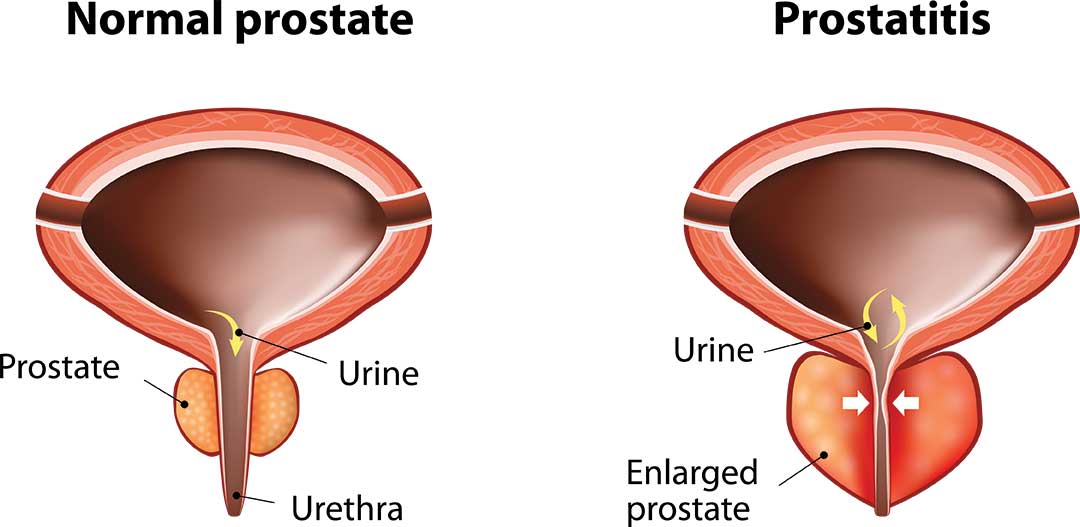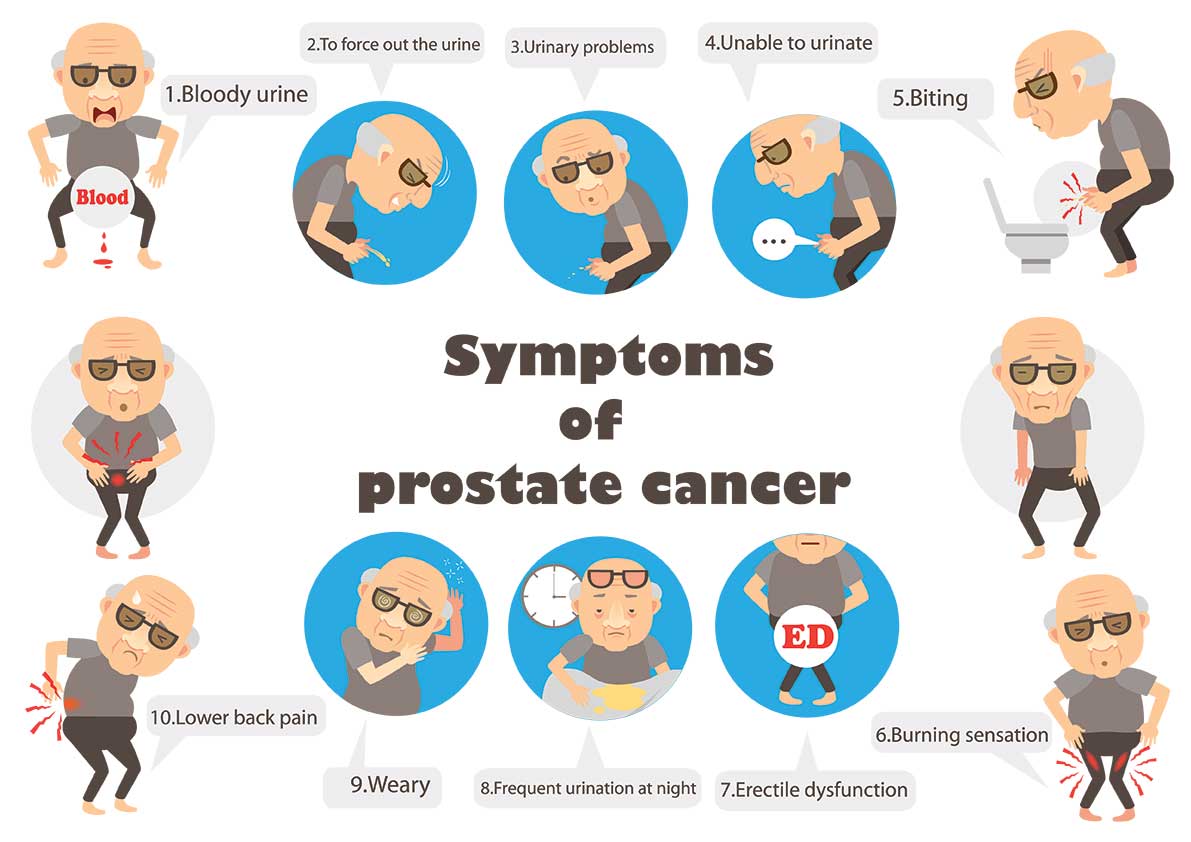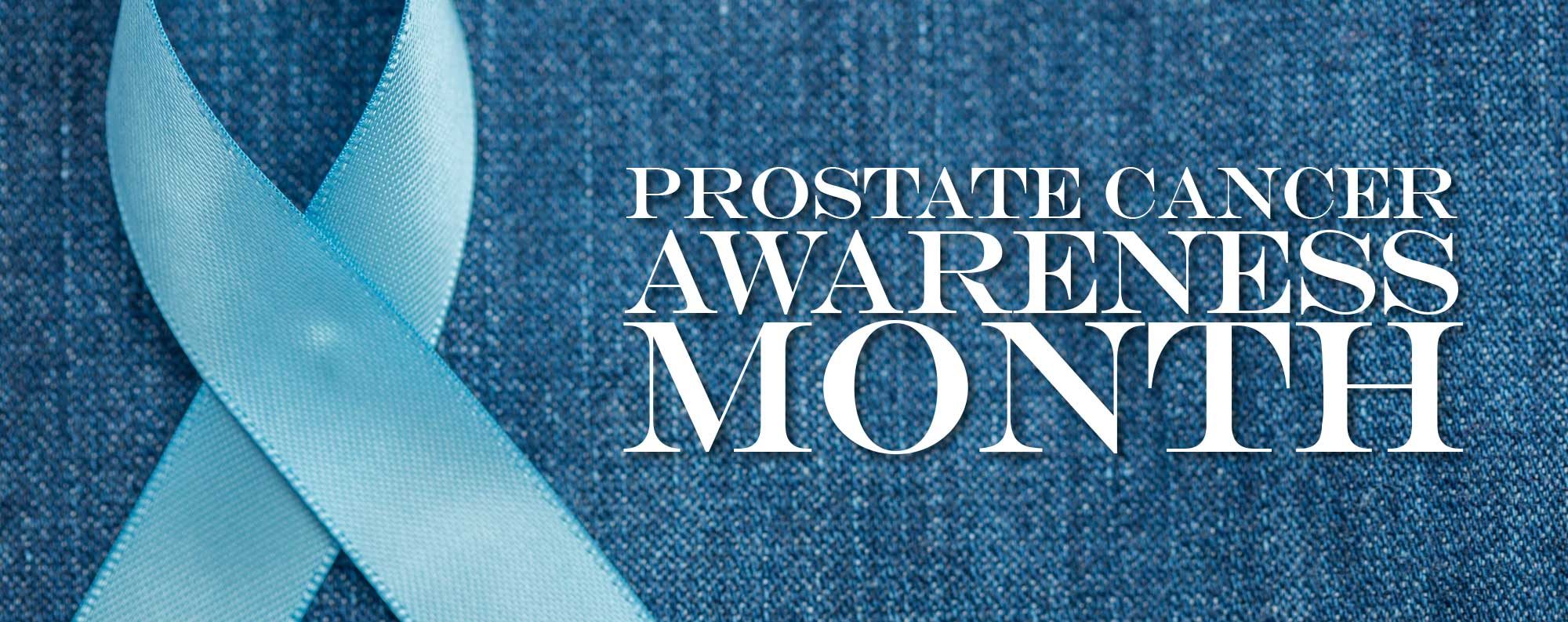I found myself bent over a table, buck naked, with my legs spread apart.
My testicles were already sore from being fondled from a physical exam, and given my current position, I was in a lonely place in my mind. Then, the doctor inserted his finger into my rectum and asked, “Do you feel anything other than my finger in your butt?” Which I replied, “Soreness with a side of shame.”

About a month prior to this visit, I began noticing unsettling changes and pain in my nether region. The constant urge to urinate with little to no relief, blood in my urine that did make its way out, and a burning I wouldn’t wish upon my worst enemy. I take that back, they probably deserve it.
Following the Prostate Exam, in addition to multiple other tests, the diagnosis came back that I had prostatitis.
Prostatitis, the inflammation or swelling of the prostate gland.
Prostate, a walnut sized gland found only in men, between the bladder and penis. It is responsible for protecting sperm with a secreted fluid as it is ejaculated.
I was grateful it was not a diagnosis more severe, but at nineteen years old, I wondered how on earth I could be dealing with something like this. Wasn’t this something affecting only older men?
“Prostatitis affects men of all ages but tends to be more common in men 50 or younger.”

Prostate issues can affect men of any age. However, there are some men prone to more serious issues affecting the prostate than others. For example, African American men are about 70% more likely to develop prostate cancer, according to Cancer Treatment Centers of America.
Let’s be clear, there is no link between being diagnosed with prostatitis and developing prostate cancer. Although, I always believe it is in everyone’s best interest to get ahead of these things and err on the side of caution, and I can only hope you share the sentiment.
“Prevention is better than a cure.”
The best way to prevent issues affecting your prostate is with preventive methods.
Here’s How:
- Getting tested – A simple PSA (Prostate-Specific Antigen) Test or Prostate Exam could mean the difference between life and death
- Limiting alcohol, caffeine, and spice intake
- Minimizing Saturated Fat intake
- Ejaculate at least once every three days

Symptoms to look for:
- Bloody urine
- Urge to urinate frequently at night
- Burning sensation
- Inability to urinate despite feeling the urge to
- Pain in the perineum (space between rectum and scrotum)

In a nutshell (pun intended), if you are experiencing any issues, it is in your best interest to get checked by your doctor. Although, you may think a prostate exam to be emasculating or quite simply embarrassing, it is much better than the alternative. Don’t let your ego get in the way of your health. You get one penis, take care of it.
By Nicholas Lucin


